Linux Kernel Development:
Getting Started
Randy Dunlap
Linux Kernel Developer,
Mentor, and Janitor
IEEE Northcon
May 19, 2005
Copyright 2005 Randy Dunlap, All rights reserved.
�
Agenda
■ Timetable: 10:00am – 3:00pm with 15minute break every hour,
plus lunch
■ Lots of time for questions and discussion
■ Abstract:
■ Linux development is fastpaced and [as they say in Oregon] “things
are different here.” This tutorial introduces some of the Linux culture
and how to get things done well.
2
Copyright 2005 Randy Dunlap, All rights reserved.
�
Topics
■ Open source development style, values, culture
■ Linux rapid development cycle
■ Linux “maintainers” and hierarchy
■ Communications methods
■ Advantages of having a driver in the mainline kernel tree
■ Coding style
■ How to submit Linux kernel patches
■ Some best known practices
■ Legal/Licenses
■ Testing
■ Working in the Linux kernel tree
3
Copyright 2005 Randy Dunlap, All rights reserved.
�
Major Goals
■ Encourage new device driver development and support
■ Driver code merged and maintained in mainline (GPL)
4
Copyright 2005 Randy Dunlap, All rights reserved.
�
Development Style, Values, and Culture
■ Learning curve, things are different
■ Meritocracy – good ideas & good code are rewarded
■ Chance to work on a real OS – any parts of it that interest you
■ Massive amounts of open communication via email, IRC, etc.
5
Copyright 2005 Randy Dunlap, All rights reserved.
�
Linux Culture
■ Work in open, not behind closed doors (in smokefilled rooms) #
■ Community allegiance is very high
■ Do what is right for Linux
■ Meritocracy: good ideas and good code are rewarded
■ Often driven by ideals and pragmatism, bottomup development
■ Not driven by marketing requirements
■ Don't just take, give back too: #
■ Modifications are & remain GPL (if distributed)
■ Payment in kind, selfinterest
■ Improve software quality, features used/understood more
6
Copyright 2005 Randy Dunlap, All rights reserved.
�
Linux Culture (2)
■ Committed to following and using standards (e.g., POSIX, IETF)
■ Committed to compatibility with other system software
■ Informal design/development: Not much external highlevel project
planning or design docs (maybe some internally at companies); can
appear to be chaotic
■ New ideas best presented as code, not specifications or
requirements
■ RERO: Release Early, Release Often for comments, help, testing,
community acceptance #
■ Possible downsides: flames, embarrassment
7
Copyright 2005 Randy Dunlap, All rights reserved.
�
Linux Culture (3)
■ Development community is highly technical
■ Motivated and committed, but since many are volunteers, treat them
with respect and ask/influence them, don't tell
■ Continuous code review (including security)
■ Continuous improvement
■ Have fun!! :)
■ Follow the culture
8
Copyright 2005 Randy Dunlap, All rights reserved.
�
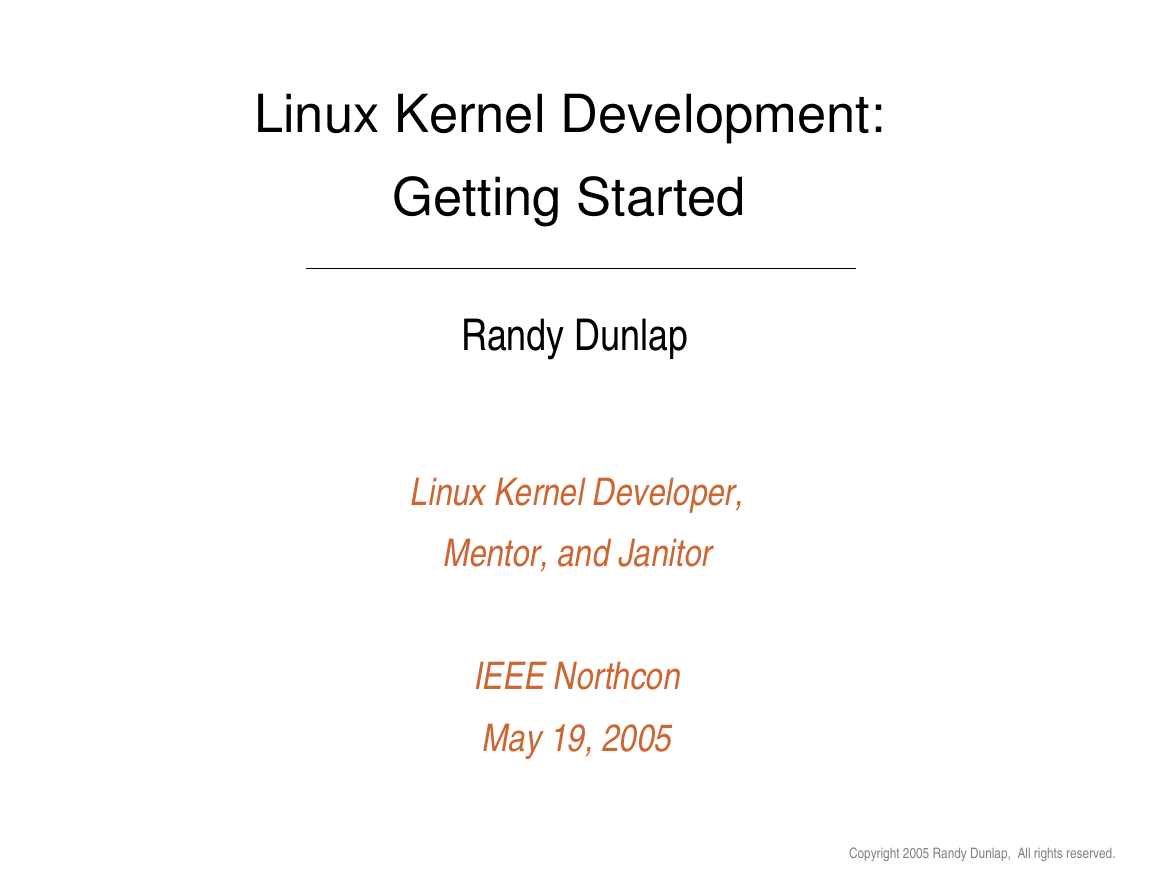
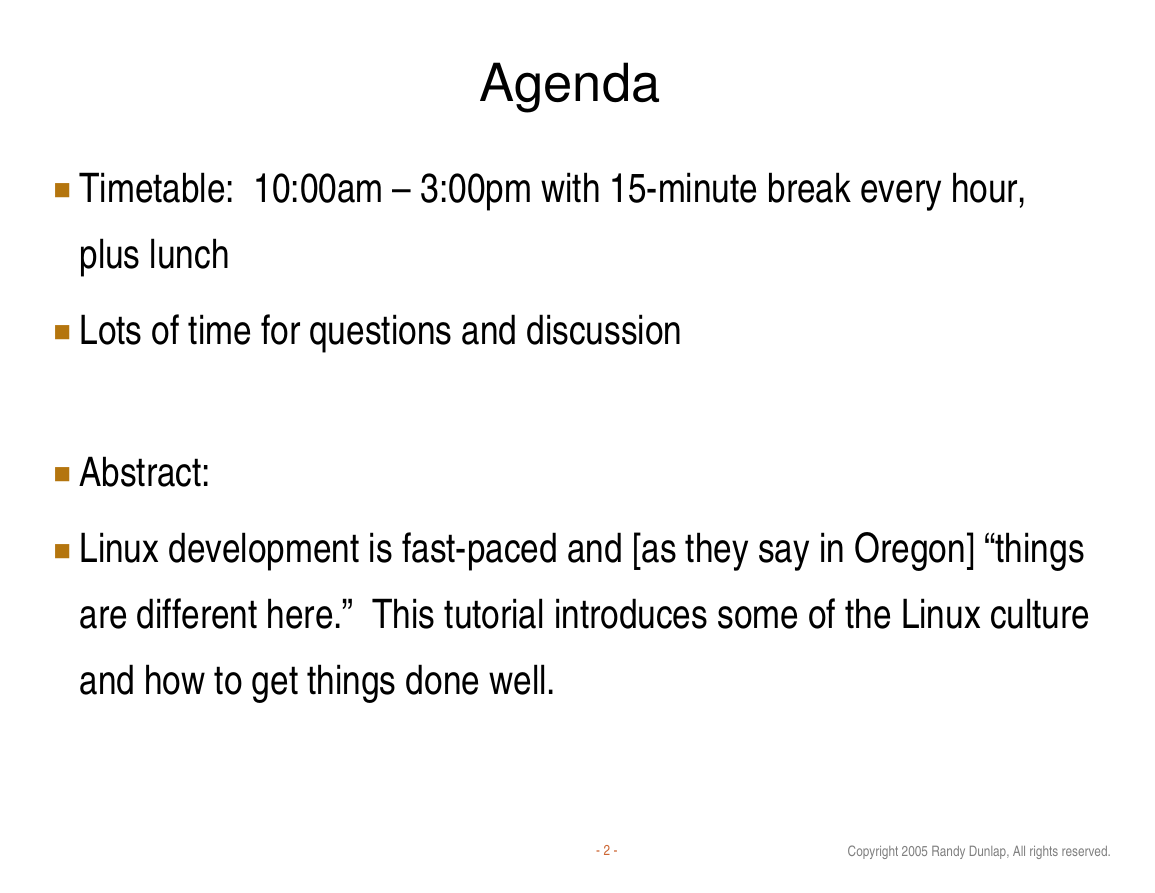
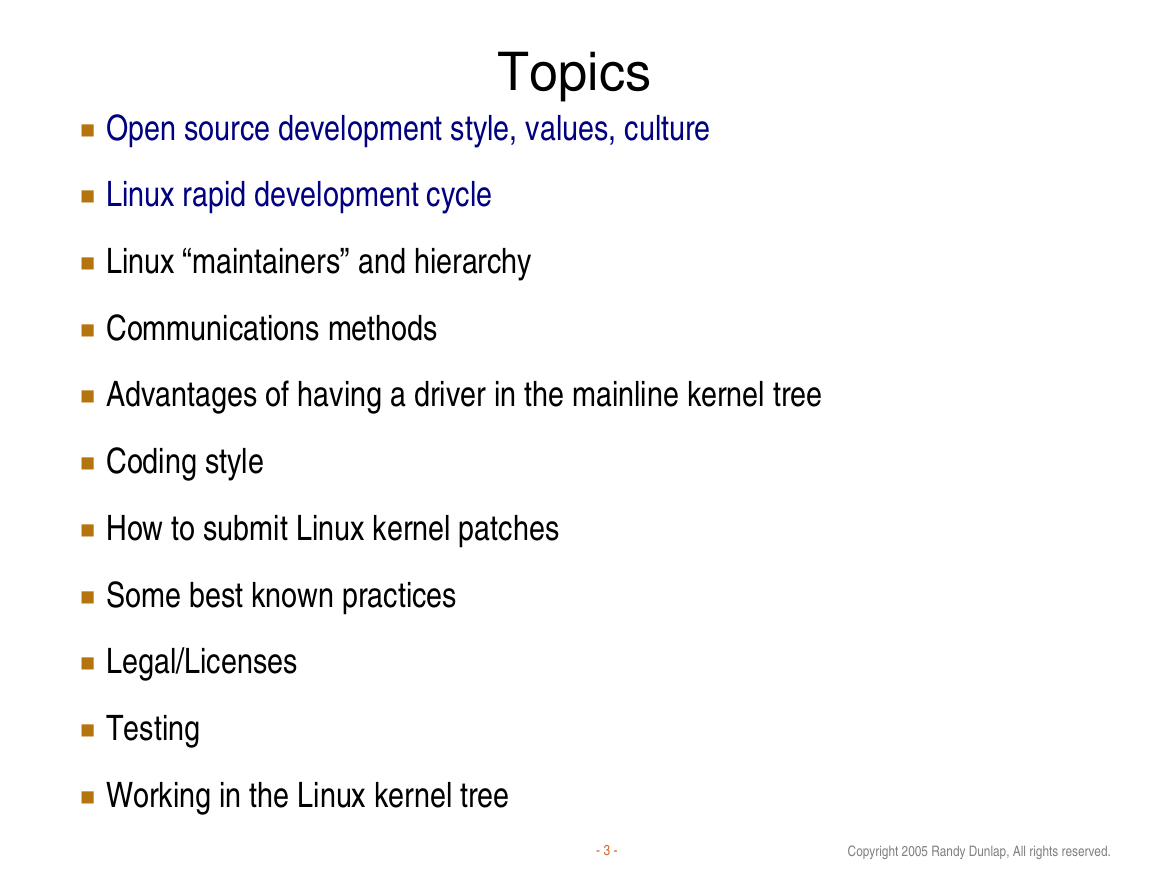
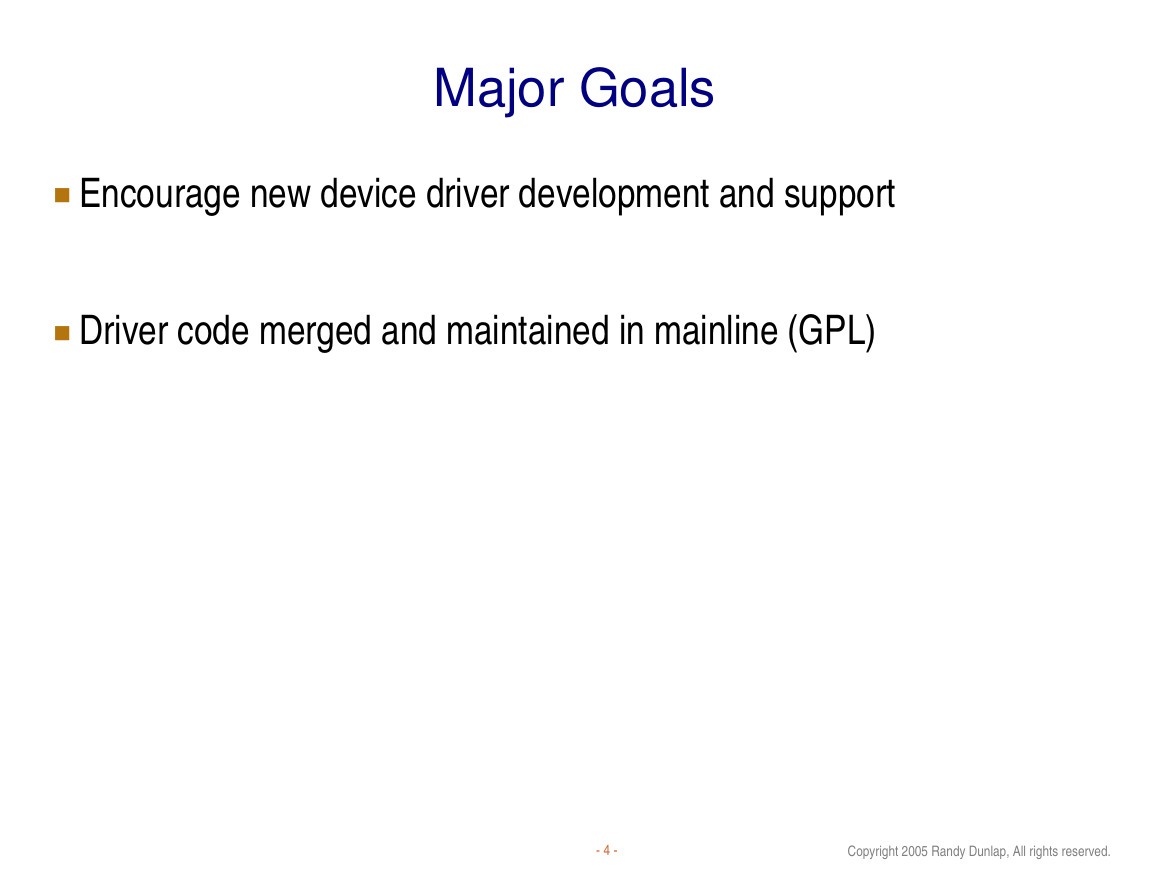
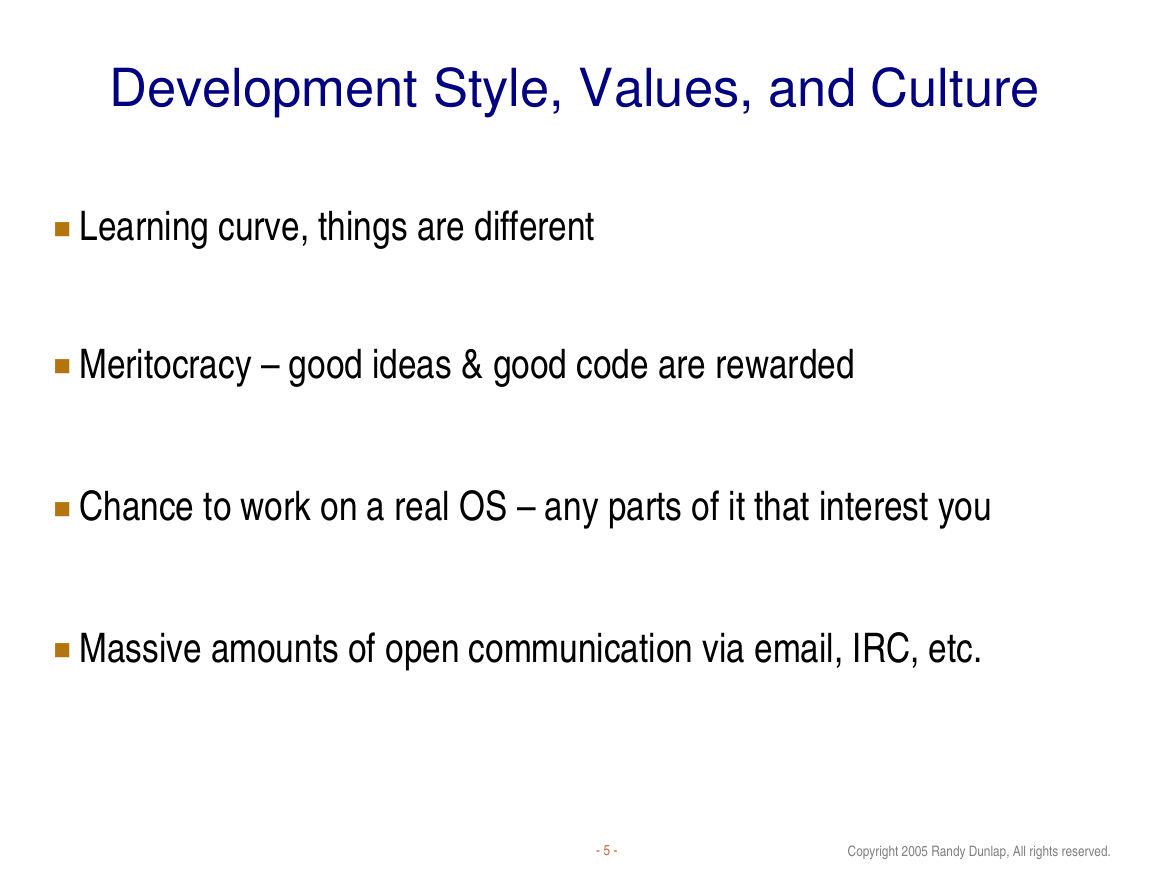
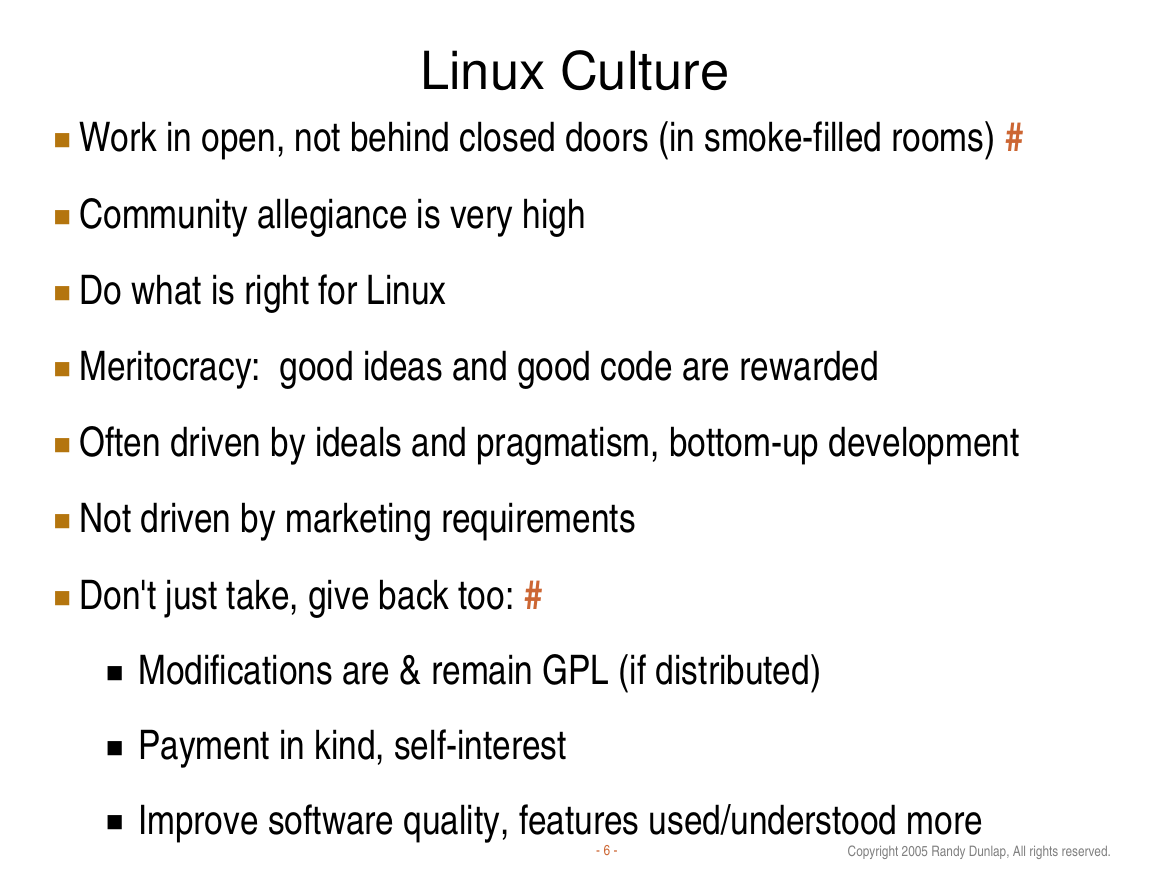
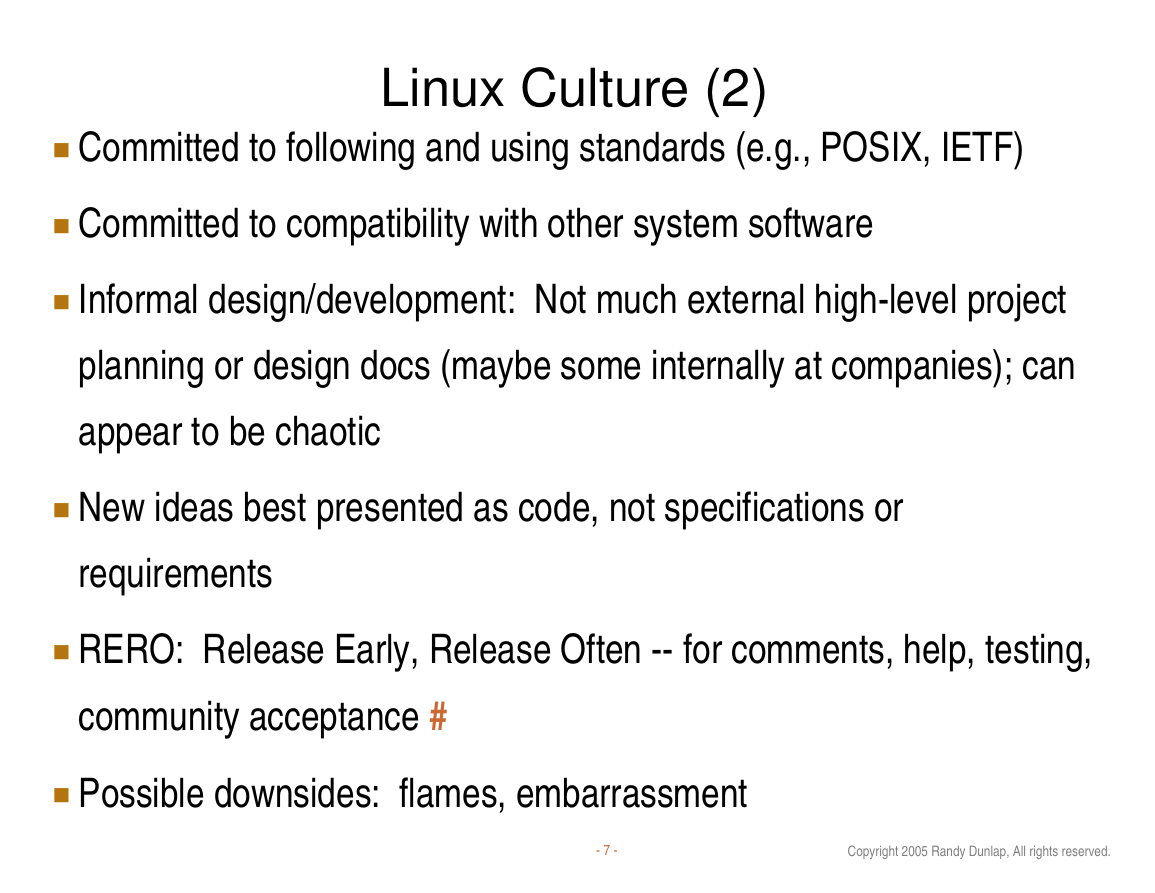
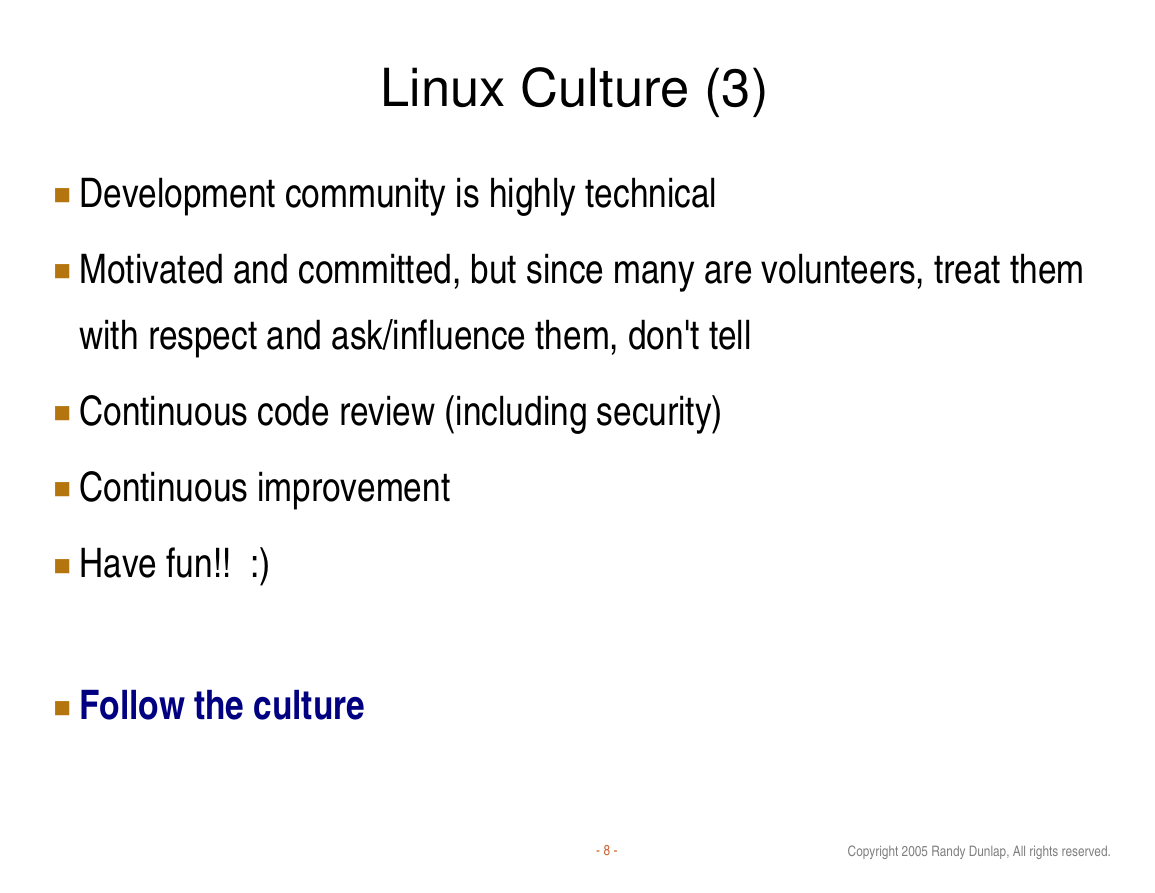








 2023年江西萍乡中考道德与法治真题及答案.doc
2023年江西萍乡中考道德与法治真题及答案.doc 2012年重庆南川中考生物真题及答案.doc
2012年重庆南川中考生物真题及答案.doc 2013年江西师范大学地理学综合及文艺理论基础考研真题.doc
2013年江西师范大学地理学综合及文艺理论基础考研真题.doc 2020年四川甘孜小升初语文真题及答案I卷.doc
2020年四川甘孜小升初语文真题及答案I卷.doc 2020年注册岩土工程师专业基础考试真题及答案.doc
2020年注册岩土工程师专业基础考试真题及答案.doc 2023-2024学年福建省厦门市九年级上学期数学月考试题及答案.doc
2023-2024学年福建省厦门市九年级上学期数学月考试题及答案.doc 2021-2022学年辽宁省沈阳市大东区九年级上学期语文期末试题及答案.doc
2021-2022学年辽宁省沈阳市大东区九年级上学期语文期末试题及答案.doc 2022-2023学年北京东城区初三第一学期物理期末试卷及答案.doc
2022-2023学年北京东城区初三第一学期物理期末试卷及答案.doc 2018上半年江西教师资格初中地理学科知识与教学能力真题及答案.doc
2018上半年江西教师资格初中地理学科知识与教学能力真题及答案.doc 2012年河北国家公务员申论考试真题及答案-省级.doc
2012年河北国家公务员申论考试真题及答案-省级.doc 2020-2021学年江苏省扬州市江都区邵樊片九年级上学期数学第一次质量检测试题及答案.doc
2020-2021学年江苏省扬州市江都区邵樊片九年级上学期数学第一次质量检测试题及答案.doc 2022下半年黑龙江教师资格证中学综合素质真题及答案.doc
2022下半年黑龙江教师资格证中学综合素质真题及答案.doc